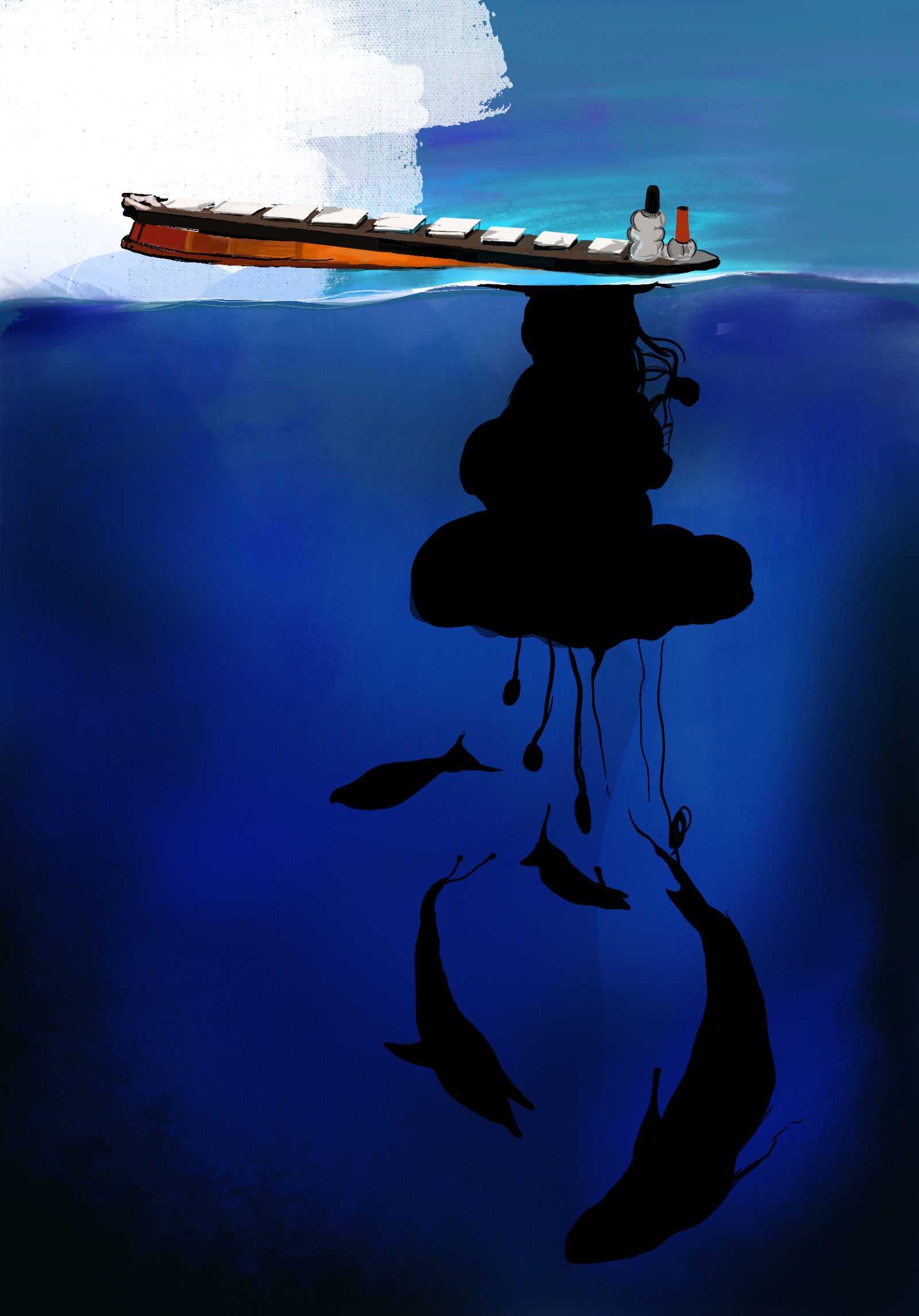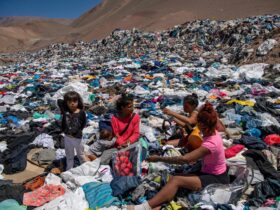On September 12, over a dozen dead dolphins washed up on the shores of Port Louis, Mauritius prompting thousands of people to take to the streets in outrage. This recent unrest comes in response to two major issues the East African island nation is currently dealing with: 1) holding Japanese shipping company Mitsui O.S.K. lines accountable for a recent oil spill and 2) facing a frustrated public that believes the country was inadequate in responding to the environmental disaster. The ill-managed government response to the spill and the lack of properly enforced waste regulation serves as a cautionary tale not only for small island countries, but for countries around the world dealing with the tension between delicate ecosystems, adequate environmental protections and the priorities of large corporations.
On July 25, Japanese bulk carrier MV Wakashio, en route to Brazil from China, ran aground—this occurs when there isn’t enough deep water to keep the ship afloat—on the coral reefs of Pointe d’Esny. Immediately following the grounding, the Mauritius National Coast Guard found small traces of oil believed to be spilled from the vessel. However, no other spills were reported to be found. Tragically, two weeks later, approximately 1,000 tons of oil leaked into the surrounding sea. As an island nation dependent on its natural resources, the spill further strained Mauritius’ economy, which had already been deeply affected by the coronavirus pandemic and a loss of tourism.
This is not the first time Mauritius has experienced a ship grounding on its coral reefs. In 2012, a shipwreck on the Saint Brandon Archipelago resulted in the destruction of the corals. Again in 2016, MV Benita grounded on the country’s southeastern coast. While the grounding did not result in the leaking of large tons of oil, the lack of enforcement around allowing unanticipated ships to approach the island raised eyebrows.
Even with an extensive plan presented at a United Nations Conference in March about how to properly deal with an oil spill, the Mauritian government fell short in efficiently responding when faced with the situation they supposedly had planned to prevent. When the authorities were not able to provide an adequate number of booms, a type of containment equipment, volunteers were forced to either rely on improvised devices or wait for more equipment to arrive. Without any plans, there is no way for Mauritius to properly mitigate the next disaster when it arrives. Though Mauritius intended to stop environmental damage, its lack of action was cause for domestic concern.
Previous oil spills in marine environments suggest that Mauritius’ biodiversity will suffer a significant loss, as seen two years after the 2012 shipwreck on the St. Brandon Archipelago when corals eventually turned black and were permanently destroyed. A hub for about 1,700 different species, including fish, marine mammals, turtles, coral reefs, seagrasses, and mangroves, Mauritius is home to two internationally-protected wetland sites, two Marine Protected Areas (MPAs), and one nature reserve. The biodiversity of the country is what made it a popular destination for tourism, but also incredibly susceptible to the horrors of environmental wetland degradation. The dozens of dolphins found on the shores were not just a result of an unfortunate isolated incident; they were a consequence of negligence on the part of big oil and government. Both actors prioritized measures that protected their interests over marine and land ecosystems.
The full impact of this oil spill will likely not be seen for years; however, moving forward, both Mauritius and the international community must pay closer attention to what is being done to prevent these disasters from occurring. Degradation of biodiversity isn’t an isolated problem to only Mauritius; seventeen countries across four continents are collectively home to more than 70% of the world’s biodiversity, despite only making up 10% of the world’s surface. With none of the twenty targets made during the UN Convention on Biological Diversity ten years ago fully met, the recent published report is another signal that environmental regulations are not being taken seriously enough to address how methods of production, consumption, and trade contribute to loss of biodiversity.
The one billion yen pledged to invest in environmental initiatives and supporting the local fishing community in Mauritius by Mitusi O.S.K. Lines is not enough to address the ecological disaster at hand. The number of large oil spills have been on the decline since the 1980s, but the volume of oil spilled has been on a steady increase since the 1990s, with more than 80% of them being small oil spills leaking less than seven tons. Based on this data, the largest concern aren’t the ships carrying hundreds of thousands of oil, but the ships carrying much less.
The international community must cooperate better to create and enforce initiatives that establish stricter regulations on natural gas and other harmful chemical transportation in an effort to better prevent tragic accidents. Holding large oil companies and their ship carriers accountable before the disaster can even occur should be prioritized.
Additionally, the sidelining of Mauritians who were just as capable, if not more so, than the advisors sent by the shipping company and insurance firms, resulted in a slow and ill-managed response. Governments must place greater emphasis on the local expertise of those native to the region. This key realization would prove to be beneficial in more adequately fostering solutions in early response. Without the collaboration among various sectors and individuals to mitigate and implement improved policies, Mauritius, and similarly vulnerable countries, will continue to miss the mark at the expense of the planet and those who live on it.







